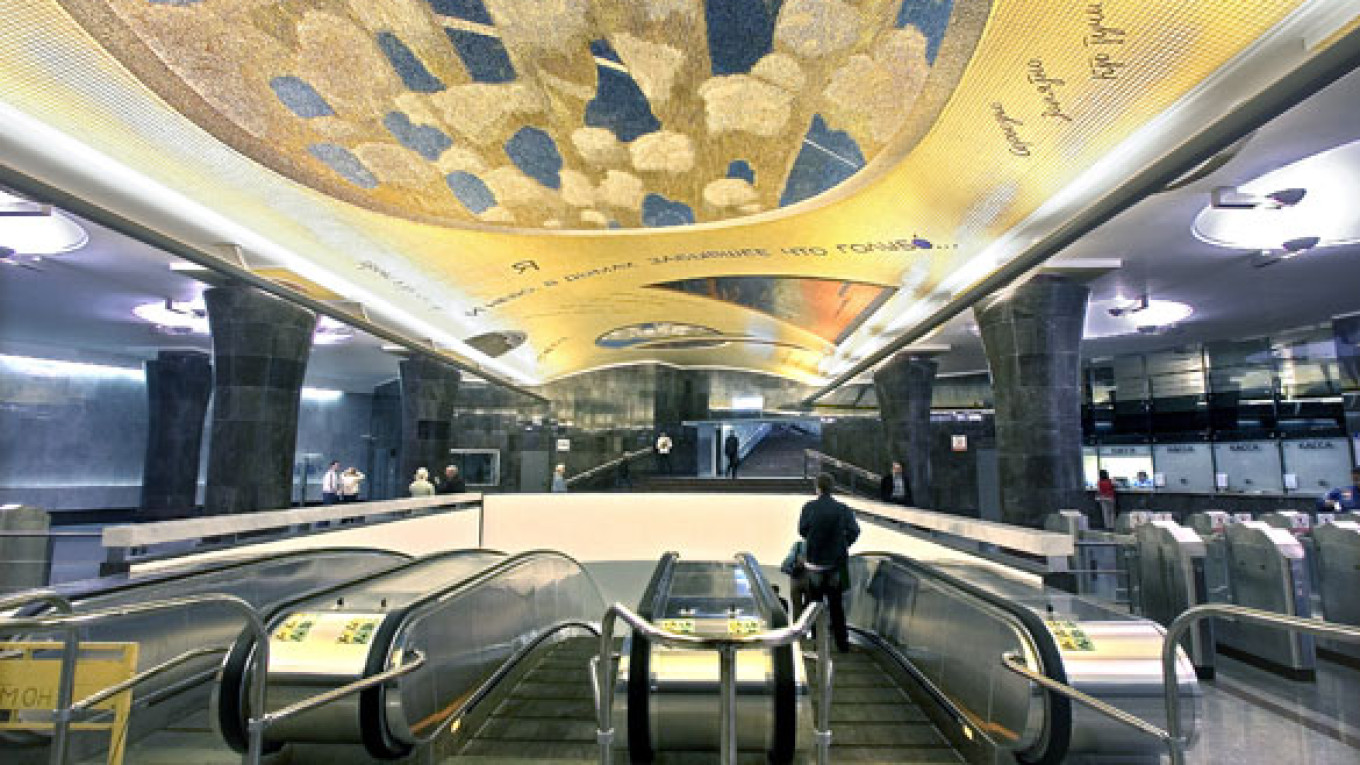City Hall is considering privatizing the Moscow metro system as a step toward developing the capital's infrastructure, the Moscow government said in a new strategy document.
Posted on the website of the city's economic policy and development department on Thursday, the document proposes "attracting private investment from outside the [city] budget for metro system development, including by corporatizing the metro system."
It says the privatization would be done "while preserving a controlling stake for Moscow," meaning that the metro would be run by a private-public partnership. The document covers urban planning through 2025 but otherwise doesn't specify a date for privatization.
Though it carries no legal weight, the proposal could garner support: It comes as the city is undertaking an ambitious expansion of the metro system, with Mayor Sergei Sobyanin's administration announcing last month that 150 kilometers of new track and 70 new stations will be built by the end of 2020.
Marat Khusnullin, deputy mayor for urban planning policy and construction, formally presented the expansion plans at an April 25 city government session chaired by Sobyanin, who said the metro "definitely is not keeping up with the current development of the city or its potential."
Their plans call for building a second ring line — 42 kilometers of track that will circle through Prospekt Vernadskovo, Dynamo and 14 other outlying stations.
In order to be completed by 2020, the plans would entail building at a rate of seven to eight stations and 17 kilometers of track per year.
There have been cases of private investment in the Moscow metro. Opened in 2009, the Myakinin?? metro station at the western end of the Dark Blue Line was built through a private-public partnership between the city and real estate holding Crocus Group. The station connects directly to Crocus Expo exhibition center and Crocus Citi Hall concert center.
It was the first subway station in Russia to be built with funds from a private investor, according to the Crocus Group website.
Also, gold company Russkoye Zoloto contributed to the financing of the construction of an additional exit for the Mayakovskaya metro station.
In addition, Moscow Metrostroi, the company that builds and maintains the metro, was auctioned for about 7.6 billion rubles ($255 million) to a company called Tsentrstroi in December 2010, RIA-Novosti reported at the time.
Given the Metrostroi privatization, "it isn't such a far-fetched idea" that the whole metro system itself could be partially privatized, said Mikhail Blinkin, a transportation expert.
Auctioning part of the metro system could be fraught with legal issues, however. At least one company has challenged the Metrostroi auction in court, saying it was marred by illegal tactics. Also, a 2010 audit of Moscow transportation companies, including Metrostroi and the Moscow metro system itself, found that in recent years the companies had misspent about half of the funds allocated for improvement.
Blinkin, a professor at Moscow's Higher School of Economics and director of its Institute of Transportation Economics and Policy, said he didn't consider the statement in the strategy paper to be a true government proposal. "It isn't anything more than a draft," he said in a telephone interview.
A spokesman for Deputy Mayor Andrei Sharonov, whose department produced the strategy document, couldn't immediately be reached for comment on the metro plans.
Staff writer Roland Oliphant contributed to this report.
A Message from The Moscow Times:
Dear readers,
We are facing unprecedented challenges. Russia's Prosecutor General's Office has designated The Moscow Times as an "undesirable" organization, criminalizing our work and putting our staff at risk of prosecution. This follows our earlier unjust labeling as a "foreign agent."
These actions are direct attempts to silence independent journalism in Russia. The authorities claim our work "discredits the decisions of the Russian leadership." We see things differently: we strive to provide accurate, unbiased reporting on Russia.
We, the journalists of The Moscow Times, refuse to be silenced. But to continue our work, we need your help.
Your support, no matter how small, makes a world of difference. If you can, please support us monthly starting from just $2. It's quick to set up, and every contribution makes a significant impact.
By supporting The Moscow Times, you're defending open, independent journalism in the face of repression. Thank you for standing with us.
Remind me later.


